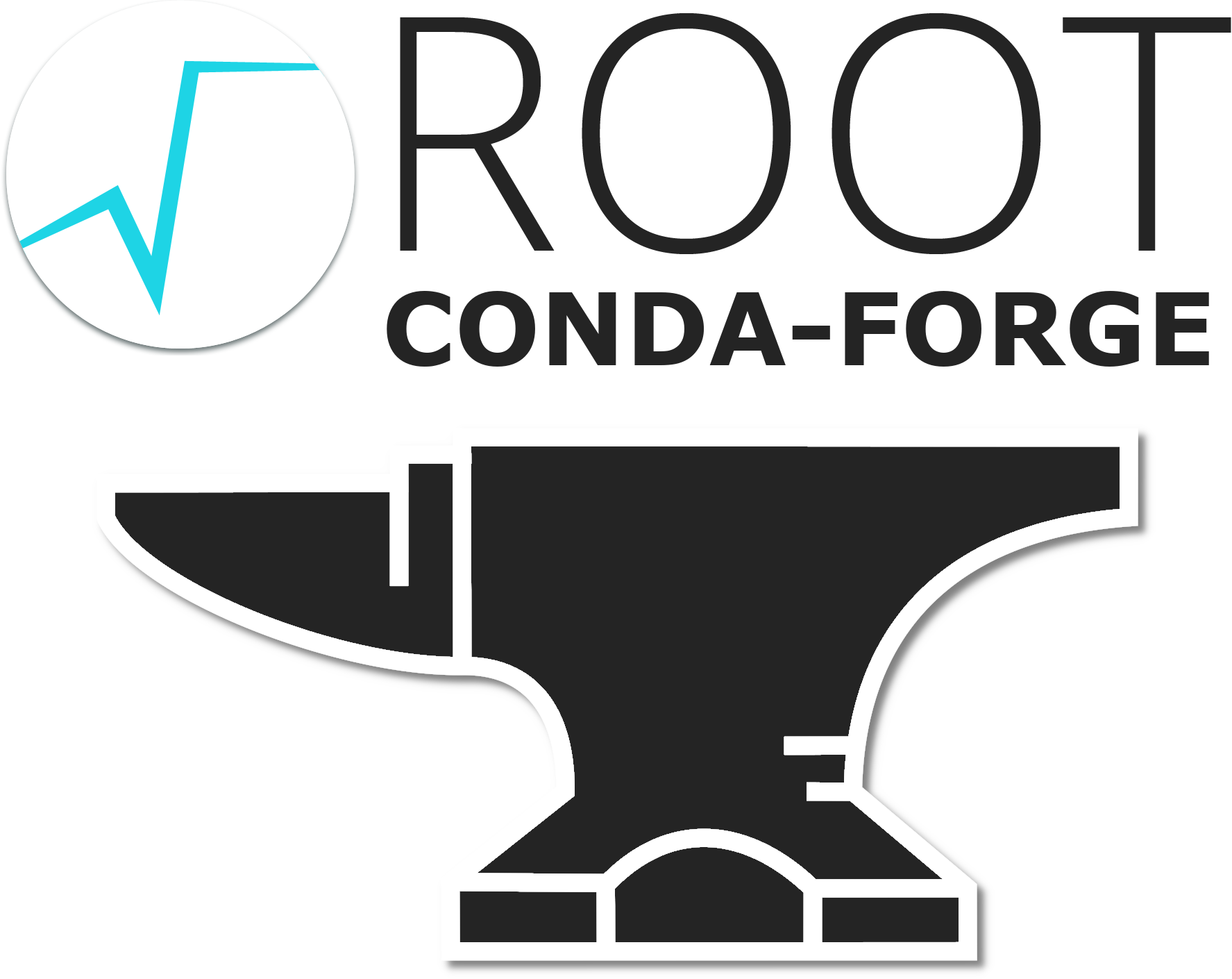
ROOT on Conda-Forge is now available!
For High Energy Physics, the go-to framework for big data analysis has been CERN’s ROOT framework. ROOT is a massive C++ library that even predates the STL in some areas. It is1 also a JIT C++ interpreter called Cling, probably the best in the business. If you have heard of the Xeus C++ Kernel for Jupyter, that is built on top of Cling. ROOT has everything a HEP physicist could want: math, plotting, histograms, tuple and tree structures, a very powerful file format for IO, machine learning, Python bindings, and more. It also does things like dictionary generation and arbitrary class serialization (other large frameworks like Qt have similar generation tools).
You may already be guessing one of the most common problems for ROOT. It is huge and difficult to install – if you build from source, that’s a several hour task on a single core. It has gotten much better in the last 5 years, and there are several places you can find ROOT, but there are still areas where it is challenging. This is especially true for Python; ROOT is linked to just one version of Python, and the one you get with pre-built ROOT can often be the wrong one. And, if you use the Anaconda Python distribution, which is the most popular scientific distribution of Python and massively successful for ML frameworks, the general rule even for people who build ROOT themselves has been: don’t. But now, you can get a fully featured ROOT 6.20 binary package for macOS or Linux, Python 2.7, 3.6, 3.7, or 3.8, from Conda-Forge, the most popular Anacanda community channel! Older releases such as 6.18 and 6.16 are also available, although the developers of the conda-forge package have provided quite a few accepted patches into ROOT, so the most recent version is highly recommended.
There is now an also an official ROOT docker image built with Conda-Forge ROOT enabled, rootproject/root-conda.
-
Technically, it contains Cling, but Cling is what runs when you run the
rootcommand. ↩
Team
- Henry Schreiner
- Chris Burr
- Enrico Guiraud
- Javier Cervantes Villanueva
Presentations
- 10 May 2022 - "ROOT: Homebrew and Pip plans", Henry Schreiner, ROOT user's workshop
- 21 Mar 2019 - "Conda: a complete reproducible ROOT environment in under 5 minutes", Henry Schreiner, 2019 Joint HSF/OSG/WLCG Workshop